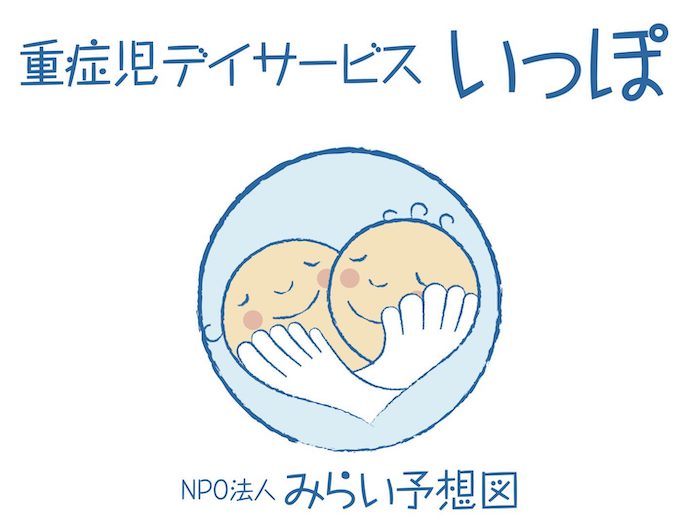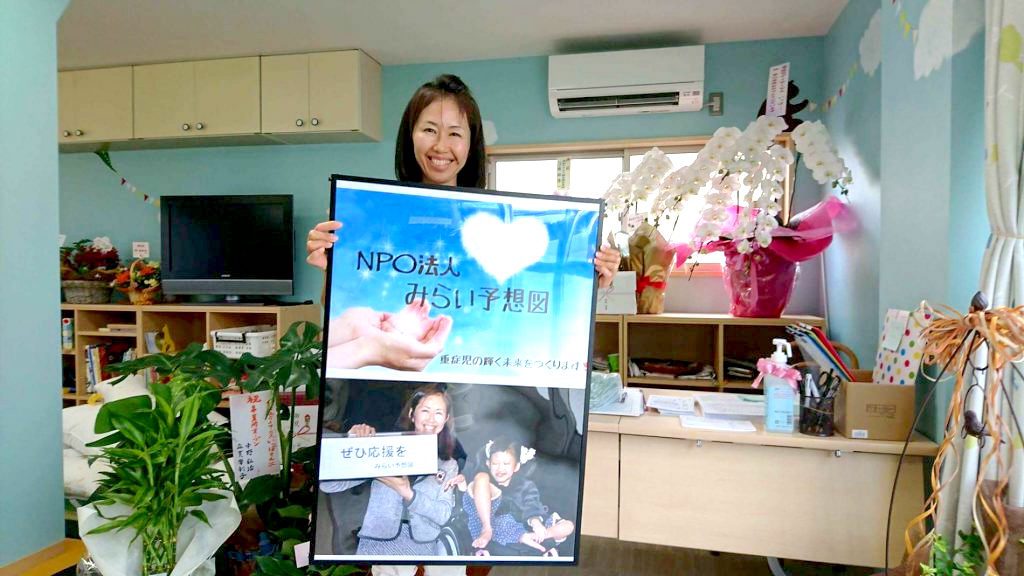By Natsumi Tokumoto
There are two children and six staffs on this day, and they are talking happily. There is a clean and big room, with many books and toys inside. It looks delightful facility. In addition to that, there are some machines such as wheelchairs and two big cars outside, too. One of the two children who were in there were wearing a ventilator. The other child was held by a physical therapist to get the right posture. This is “Ippo,” a facility for severely disabled children under eighteen years old.
“Ippo” started in 2017 September in Kochi Prefecture to support disabled children, their parents, and siblings. It is one of the NPO, and Ms. Rie Yamasaki is the leader of this facility. She created a new NPO “Miraiyosouzu,” and Ippo is one part of Miraiyosouzu. She also has a daughter with some disabilities, and she has overcome many difficulties. Yamasaki started Ippo to help people who are facing challenges like her.
Usually, most people don’t know any disabled people, and they do not have knowledge about them. Also, it is not easy for disabled children to be accepted to go to nursery school or school with healthy children. As a result, disabled children cannot experience as many things as healthy children.
“Every child develops as experience various activities,” she said, “no matter how serious disabilities they have.” Experience stimulates children’s growth. Therefore, those facilities are essential to the development of disabled children.
However, these facilities are not enough in Japan. In cases of Kochi, there are only eight facilities. Furthermore, six out of eight are in Kochi city, where has the largest population about 330,000 in Kochi. On the other hand, the depopulated area has one facility or none, but there are a few disabled people. People who live in areas where there are no facilities need to go to a distant facility spending more than 1hour. One user of “Ippo” takes 1 hour to get there.
Some people might think that those facilities should be established in rural areas as well. However, this is difficult financially. Those facilities need many staffs such as a nurse, childminder, speech therapist, physical therapist, and child development support manager. Generally, the salary of staff of those facilities is dependent upon the number of users, but disabled children tend to get sick easily, and reservations are often canceled. It means hard to manage. Therefore, in depopulated areas, there are few users; it is harder to manage.
Also, collaboration with school hospital and welfare is essential, but there are not enough of those facilities in rural areas. The most important thing about these facilities is developing children and supporting them and their families. Therefore, good relationship, understanding, and cooperation with school hospitals and welfare are key.
Generally speaking, it is not easy for disabled children to get a stable job. However, there are few facilities for severely disabled people who are over 19 years old. Money and a place to live comfortably are essential, but it is hard for those people to get them.
“The children also have their opinions and thinking,” says Ms. Yamasaki. “So, if they can express themselves, they may be able to be helpful and contribute to society. It means they can get work like healthy people.”
One philosophy of “Ippo” is creating a society which can help each other in the local community. Disabled children need much help to live in whole life even after their parents become not to be able to help them. When this situation arises, they are forced to enter a facility which can be used anybody 24 hours every day. However, such a large facility which is managed by the top of the prefecture or country have a lot of users. Therefore they may not be able to do what they want to. Ms. Yamasaki hopes her daughter to live in the local community, not enter a large facility and live with what she wants to do.
Ms. Yamasaki’s next goal is creating a facility for severely disabled people over 19 years old.
“I was given a lot of support when I was in trouble,” says Ms. Yamasaki. “One of the reasons why I established “Ippo” is to give back thanks to people who gave a lot of help when I was in troubles. Next, I want to help people who have difficulty like me before.”
Role of facilities must be helpful for users and their family. Her experiences are leading to create a symbiotic society, and it is being connected to raise the youth who have an understanding about disabled children.
Traditional Japanese seasonal events, like hinamatsuri and mamemaki, are held. Hinamatsuri is cerebration for girls and held on March 3th. Commonly, people display Hina-doll and wish the growth and health of girls. Mamemaki is held on February 3th. We throw beans to chase off demons. Demons refer to bad luck, and we hope for good luck for the year. After throwing beans, we eat as many beans as our age. In addition to those events, excursion with their parents, Christmas party, and some enjoyable activities are held. Therefore, They can experience enjoyable things in here, in spite of their severe disabilities. Every child is experiencing various things and growing in here today, thorough those events with friends, staff, local people, and families.
“I hope that all disabled children can live like healthy children. Now, it is my next goal to establish a local community which is supported and understood by local people to create everybody’s smile.”



Great facility! If there are what I can do, I’d like to do!
LikeLike
The awareness of disabled children is important. This is a great support for them!
LikeLike
I hope such kind of service would increase and more children with disability could live as well.
LikeLike
This is important for all of us to understand about disabilities and actions for people who have. Social barriers we create will be overcoming by her activity.
LikeLike